

Lisa-Maria Neudert is a Doctoral Candidate at the Oxford Internet Institute and a Fellow at the Weizenbaum Institut. Neudert studies the regulation of platforms with a particular focus on governance around AI, content moderation, and dis/misinformation. Her recent work on regulatory innovation in digital domains has appeared in “The Political Quarterly”, and other journals.
Neudert is a core researcher at the Programme on Democracy and Technology at the Oxford Internet Institute and the Secretary to the Oxford Commission on AI & Good Governance at Oxford University. She holds an MSc in Social Science of the Internet from the University of Oxford, UK, and a BA in Communication Science from the Ludwig-Maximilians-University in Munich, Germany. Selected as a Fulbright scholar she studied at the Georgetown University in Washington DC, USA, and the National University of Singapore, Singapore.
Neudert’s commentary writing has appeared in The Guardian, MIT Tech Review and TechCrunch, and a host of other popular outlets.
Platform regulation, technology and governance, dis/misinformation, content moderation



DemTech investigates the use of algorithms, automation, and computational propaganda in public life.
This project will focus on how bots, algorithms and other forms of automation are used by political actors in countries around the world.

This project investigates contemporary trends in political communication, political polarization, artificial intelligence, and data diversity in the United States.
I am a co-founder at Pattrn Analytics & Intelligence.
I conduct my research in line with the University's academic integrity code of practice.
By Lisa-Maria Neudert and Philip N. Howard
AI promises to unlock new efficiencies in government and transform a wide array of public service tasks, but short-sighted use of AI could just create new problems. This report offers a framework for integrating AI with good governance.
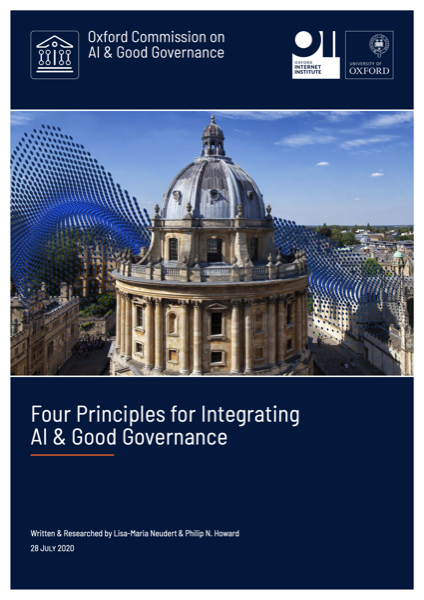
By Lisa-Maria Neudert, Aleksi Knuutila, and Philip N. Howard
AI is increasingly ubiquitous, but what does the public think of it and how should governments employ it? Data from 142 countries show that publics in the West and Latin America are the most concerned about possible risks of artificial intelligence.
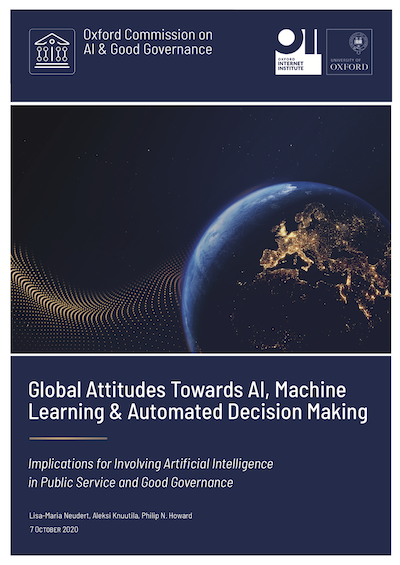

27 January 2021

15 December 2020
Spread of disinformation the biggest concern for internet and social media users globally finds new Oxford study
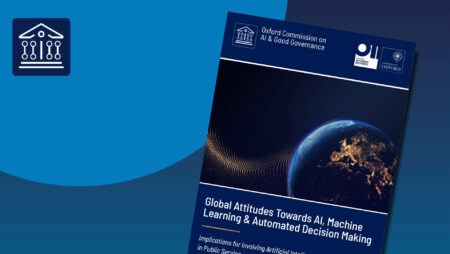
7 October 2020
In a new study by researchers at the Oxford Internet Institute, analysis shows that public perceptions on the use of AI in public life is divided, with populations in the West, generally more worried about AI than those in the East.
3 August 2020
A new report from the Oxford Internet Institute (OII), in collaboration with Oxford Information Labs (OxIL) has found that more than 60% of junk news sites are using one of the major advertising platforms help convert website traffic into income.

BBC News, 02 May 2023
Legislative police officer Adilson Paz spent three hours in direct confrontation with the invaders who ravaged the Brazilian Congress on January 8, 2023.
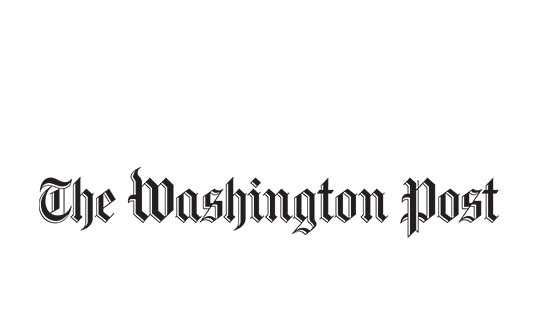
The Washington Post, 14 February 2022
The article highlights how protest movements use social media to spread their message and mobilise their supporters on the ground.
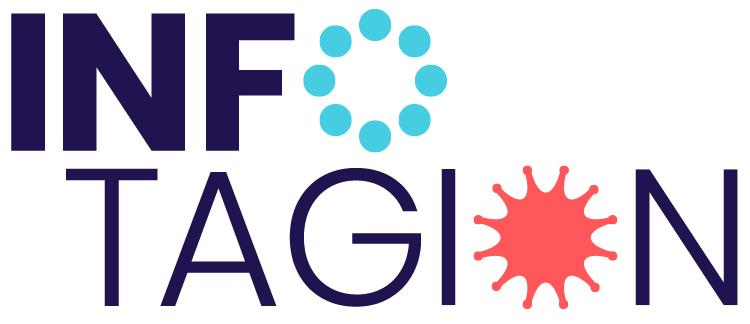
Infotagion, 17 September 2021
The Federal elections in Germany are fast approaching. How has social media shaped the discourse for this poll amid an ongoing pandemic?

Professor of Internet Studies
Philip N. Howard is a professor of sociology, information, and international affairs. He is Director of the Programme on Democracy and Technology, and is a Professorial Fellow of Balliol College.

Professor of Society and the Internet
Helen Margetts is Professor of Society and the Internet, a political scientist specialising in digital government and politics. She was Director of the OII from 2011-18. She is a Professorial Fellow of Mansfield College.